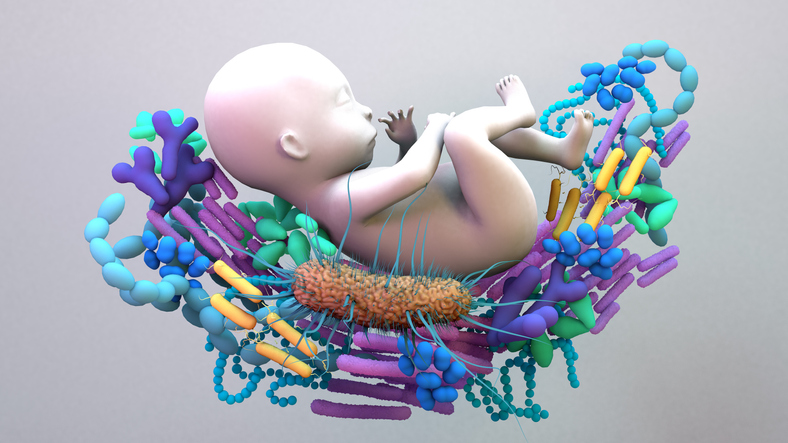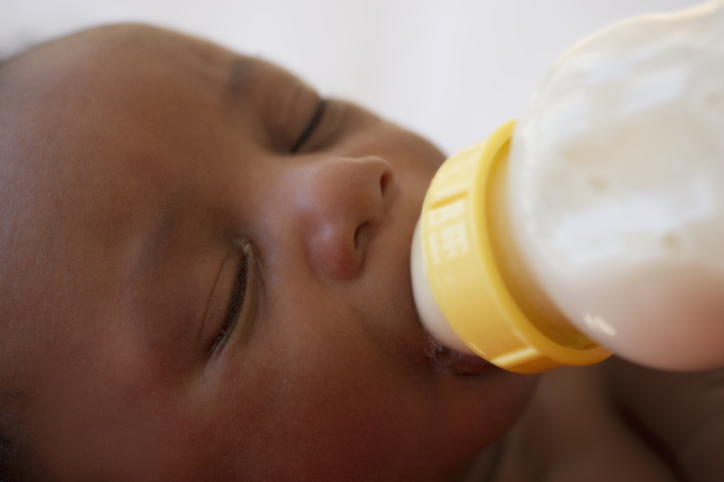Why I Wish I Had Known This About Nutrition & Lactating Mothers

By Sydney Kronfle, pH Labs Researcher & Contributor
When I was pregnant with my son, I developed gestational diabetes. Although I was very upset and shocked about this diagnosis, I knew that it was important to maintain a balanced, nutrient-dense diet not only so that I could balance my blood sugar levels but also to help ensure that I gave birth to the healthiest baby possible. Before getting pregnant, I heard so much about how I should eat healthily before conception. I saw suggestions for preparing the body for an entire year by eating well, exercising regularly, abstaining from drinking alcohol, and, of course, most definitely not smoking.
What I didn’t hear much about was the importance of nutrition in postpartum and lactating mothers. In fact, during my postpartum check-ins with my doctor, he never asked me what I was eating or how my appetite was.
If he had, my honest answer would have been my diet is pretty crappy, and my appetite is not so great. Like so many new mothers, I had a really tough time with the sleep deprivation and the anxiety that may come with keeping a newborn alive. I was so stressed and anxious that I didn’t feel that hungry a lot of the time, and when I did I often grabbed what was quick (and as you probably guessed it was not fresh fruits and vegetables). I was fortunate that I had no issues breastfeeding and that my milk supply was sufficient. My son was constantly eating. He was even labeled a cluster feeder.
I wish I had known how important diet is for lactating mothers. It’s important for the health of the mother and all that her body has been through after pregnancy and giving birth both physically and mentally, but it also may be important to the quality of breast milk produced. I do understand, of course, that not all babies are breastfed and formula-feeding is just fine. A fed baby is a fed baby, but my point is that I believe there should be more attention given to nutrition in lactating mothers and women who have the option to breast feed.

A recent study conducted in Australia looked at human milk and how it affected a baby’s gut microbiome. I learned from this study that breast milk contains something called human milk oligosaccharides (HMOs).
“Human milk oligosaccharides (HMOs) are a very important and interesting constituent of human milk, and are the third most abundant solid component after lactose and lipids. They are a structurally and biologically diverse group of complex indigestible sugars,” according to a report published by the National Institutes of Health (NIH).
HMOs are actually prebiotics.
(pH must-read - The Prebiotic in Breast Milk May Prevent Allergies in Children).
I also didn’t know, “The development of the intestinal microflora of infants is a sequential process. The beginning of this process is considered to be fetal life and the end is at about 3 years old,” (NIH).
HMOs can be life-saving.The study I mentioned earlier was a collective research project.
Lead of the study Dr. Caren Biddulph, a dietician, “...said there was growing evidence that HMOs played multiple positive roles in protecting infant health, such as reduced allergies and gastrointestinal and infectious diseases,” according to this Medical Xpress report discussing the study.
“She said HMOs also protected against necrotizing enterocolitis, a deadly disease that could affect the most vulnerable premature babies.”
HMOs may be influenced by the mother's diet.
Some of the findings of the study were, “Any level of alcohol consumption” was linked to decreased levels of particular HMOs. And to think I had a celebratory glass of champagne just a few days after giving birth when I got home from the hospital! In addition to this, intake of dietary folate was linked to total HMO levels.
(pH must-read - Pregnant or Not, You Need Folate!)

Exposure to antibiotics during pregnancy negatively impacted HMO levels as well as having pre-existing medical conditions such as thyroid dysfunction.
"Regarding the folate finding, there may be some merit in ensuring adequate folate status in clinically deficient mothers, or, at the very least, encouraging plant-based and fortified foods rich in folate in the usual diet when breastfeeding," said Dr. Biddulph, according to Medical Xpress.
Folate is naturally found in certain foods including leafy greens, okra, asparagus, bananas, sunflower seeds, brussel sprouts, asparagus, black beans, chayote, yeast, mushrooms, orange juice and tomato juice. Additional sources of folate can be found here. Something to be aware of is beef liver is high in folate, but other meats, poultry and seafood are not that high in folate.
As always, it is highly recommended to consult your doctor or competent healthcare professional regarding your diet (especially if pregnant or breastfeeding). Many new mothers continue taking prenatal vitamins after birthing their babies (I did as well), but, again, speak with your doctor.
For more pH blogs on pregnancy and being proactive about having healthy kids, read here.
Enjoy your healthy life!
Disclaimer: This article is not intended to provide medical advice. Please consult with your doctor or another competent healthcare practitioner to get specific medical advice for your situation.
The pH professional health care team includes recognized experts from a variety of health care and related disciplines, including physicians, attorneys, nutritionists, nurses, and certified fitness instructors. This team also includes the members of the pH Medical Advisory Board, which constantly monitors all pH programs, products, and services. To learn more about the pH Medical Advisory Board, click here.







